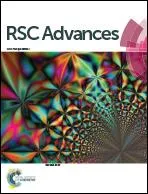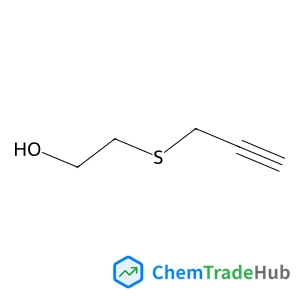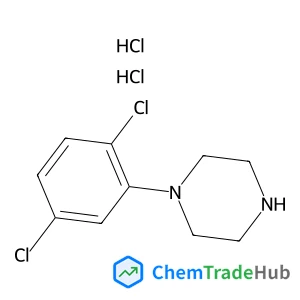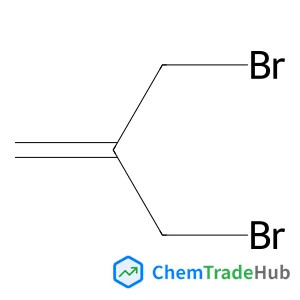Amphiphilic nanogel of enzymatically synthesized glycogen as an artificial molecular chaperone for effective protein refolding
Literature Information
Shigeo Takeda, Haruko Takahashi, Yoshihiro Sasaki
Enzymatically synthesized glycogen (ESG) bearing hydrophobic groups were prepared to construct a new artificial molecular chaperone system. The radius of the amphiphilic ESG nanogel was approximately 15 nm. The nanogels prevented irreversible aggregation of carbonic anhydrase. Cyclodextrin induced the release of carbonic anhydrase in its active form via a one-step mechanism without dissociation of the nanogels.
Related Literature
IF 6.222
Water-soluble pH-switchable cobalt complexes for aqueous symmetric redox flow batteriesIF 6.222
Enhanced power performance of an in situ sediment microbial fuel cell with steel-slag as the redox catalyst: I. electricity generationIF 6.367
An elemental S/P photocatalyst for hydrogen evolution from water under visible to near-infrared light irradiationIF 6.222
PEST (political, environmental, social & technical) analysis of the development of the waste-to-energy anaerobic digestion industry in China as a representative for developing countriesIF 6.367
Effective utilisation of waste cooking oil in a single-cylinder diesel engine using alumina nanoparticlesIF 6.367
Microscopic insights into long-range 1D ordering in a dense semi-disordered molecular overlayerIF 6.222
Stabilizing synthetic DNA for long-term data storage with earth alkaline saltsIF 6.222
Contents listIF 6.222
Transition-metal-free insertion reactions of alkynes into the C–N σ-bonds of imides: synthesis of substituted enamides or chromonesIF 6.222
Source Journal
RSC Advances

Chemistry fascinates us. This discipline is integral to life and impacts so many aspects of our world. The scope for RSC Advances is wide-ranging because we want to capture any research that can offer crucial insights and advance chemistry. RSC Advances papers should provide an insight that advances the chemistry field. Papers that contain little or no chemistry and are not considered to be of interest or relevance to the chemistry community are not within the scope of the journal. The criteria for publication are that the work must be high quality, well conducted and advance the development of the field. Articles submitted to the journal are evaluated by our international team of associate editors and reviewers for the overall quality and accuracy of the science presented. Download our full list of subject categories to see the range of topics we publish in RSC Advances. Please ensure you have considered the following points before submitting your manuscript. Does the work present an advance over the existing literature? Please supply a covering letter with your submission to demonstrate how the work is advancing the field over the existing literature Have you provided sufficient evidence/data to support your conclusions? Have you provided adequate characterisation data for your materials/compounds? (Please check the supporting information section to ensure that the necessary requirements have been met and copies of relevant spectra have been provided where necessary) Are the results discussed in the context of the literature? Are the references relevant and do they appropriately reflect the existing literature?
Recommended Compounds
Recommended Suppliers
 Taihuang Lanfeng Chemical Co., Ltd.
Taihuang Lanfeng Chemical Co., Ltd. Zhenjiang Ht Chemical Industry Co., Ltd.
Zhenjiang Ht Chemical Industry Co., Ltd. Guangzhou Mumo Yin Industry Co., Ltd
Guangzhou Mumo Yin Industry Co., Ltd Rüegg F.
Rüegg F. Linde AG, Linde Engineering Division
Linde AG, Linde Engineering Division Wuhan BoOutline Biotechnology Co., Ltd.
Wuhan BoOutline Biotechnology Co., Ltd. Yanxi Shi Dongyuan Chemical Company Limited
Yanxi Shi Dongyuan Chemical Company Limited STRIKO Verfahrenstechnik W.Strikfeldt & Koch GmbH
STRIKO Verfahrenstechnik W.Strikfeldt & Koch GmbH Michel Baulé SA
Michel Baulé SA Loyal Gain International Enterprise Limited
Loyal Gain International Enterprise Limited










![697235-38-4 - Methyl (1R,2R,3S,3aR,8bS)-6-({(2S,3R,6R)-6-[(1R)-1,2-dihydroxyethyl]-3-methoxy-1,4-dioxan-2-yl}oxy)-1,8b-dihydroxy-8-methoxy-3a-(4-methoxyphenyl)-3-phenyl-2,3,3a,8b-tetrahydro-1H-benzo[b]cyclopenta[d]
furan-2-carboxylate 697235-38-4 - Methyl (1R,2R,3S,3aR,8bS)-6-({(2S,3R,6R)-6-[(1R)-1,2-dihydroxyethyl]-3-methoxy-1,4-dioxan-2-yl}oxy)-1,8b-dihydroxy-8-methoxy-3a-(4-methoxyphenyl)-3-phenyl-2,3,3a,8b-tetrahydro-1H-benzo[b]cyclopenta[d]
furan-2-carboxylate](/structs/697/697235-38-4-ee3a.webp)


![59156-70-6 - 1,1'-[(1,6-Dioxo-1,6-hexanediyl)bis(oxy)]di(2,5-pyrrolidinedione) 59156-70-6 - 1,1'-[(1,6-Dioxo-1,6-hexanediyl)bis(oxy)]di(2,5-pyrrolidinedione)](/structs/591/59156-70-6-0f4b.webp)
